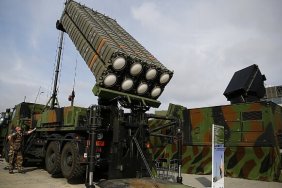There is no evidence that Russia's failed invasion of Ukraine changed China's views on the timeframe or methodology for any potential attack on Taiwan.
This is reported by CNN.
A report by the International Institute for Strategic Studies (IISS) said that the conflict in Europe could also accelerate trends in the Asia-Pacific region towards increased military spending and military capability development efforts.
Conflict over Taiwan
U.S. and regional concerns have recently grown over China's naval buildup, militarization of islands in the South China Sea, efforts to forge security agreements in the South Pacific, and heightened rhetoric surrounding disputed territorial claims over Taiwan.
Those concerns have heightened over the past year as Beijing has twice staged large-scale military exercises around the island of Taiwan and refused to condemn Russia's invasion of Ukraine.
This invasion also brought increased Chinese attention to Taiwan. Yes, the ruling Communist Party of China claims that the island is supposedly their property, despite the fact that Beijing has never controlled it. The party promised to unite the island with the mainland, if necessary - by force.
The IISS report said there was no evidence that the war in Ukraine "changed China's thinking about the time frame or methodology" for a possible attack on Taiwan.
"Beijing's view of Taiwan as an internal challenge shaped its assessment that China's use of force to retake the island would be completely unlike the war in Ukraine," the report said.
However, the report notes that Chinese military experts analyzed the consequences of Western support for Ukraine and the factors that contributed to Russia's poor military performance.
It added that "it is impossible to determine whether China will use force to seize Taiwan at some point in the future," and that Beijing's decision will be shaped not only by "assessing military capabilities, but also by considering the likelihood of a non-military response by the United States and allies," including potential economic consequences.
"There is no evidence that China has a fixed timetable for invading Taiwan," the report added.
However, a large number of states do not want to take sides in the "growing confrontation" between the USA and China. The report notes that "there is no regional trend towards US alignment" due to economic dependence and fear of escalation.
Dialogue of Shangri-La
The IISS Asian Security Summit "Shangri-La Dialogue" begins today, where questions will be raised about the war in Ukraine and its impact on the Asia-Pacific region, as well as the growing struggle between the United States and China.
Among the participants will be US Defense Secretary Lloyd Austin, Chinese Defense Minister Li Shanfu and Ukrainian Defense Minister Oleksiy Reznikov.
The defense chiefs of the US and China are not expected to meet this year, underscoring the depth of the rift between the two countries.
Thus, the head of the Pentagon, Lloyd Austin, is upset that China rejected the offer of the United States to meet at the conference, and warned that the constant lack of communication could lead to "an incident that could get out of control very, very quickly."
It should be noted that according to American intelligence, China is preparing a forceful scenario for the seizure of Taiwan, but is trying to avoid such a course of events. Beijing would prefer a peaceful reunification.






